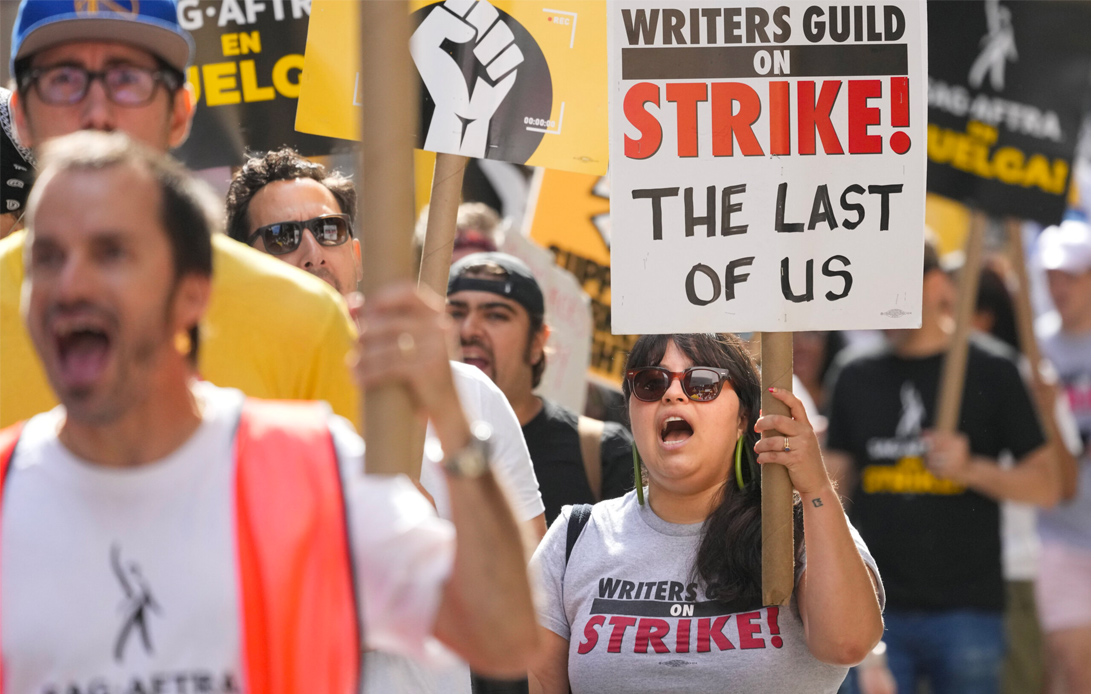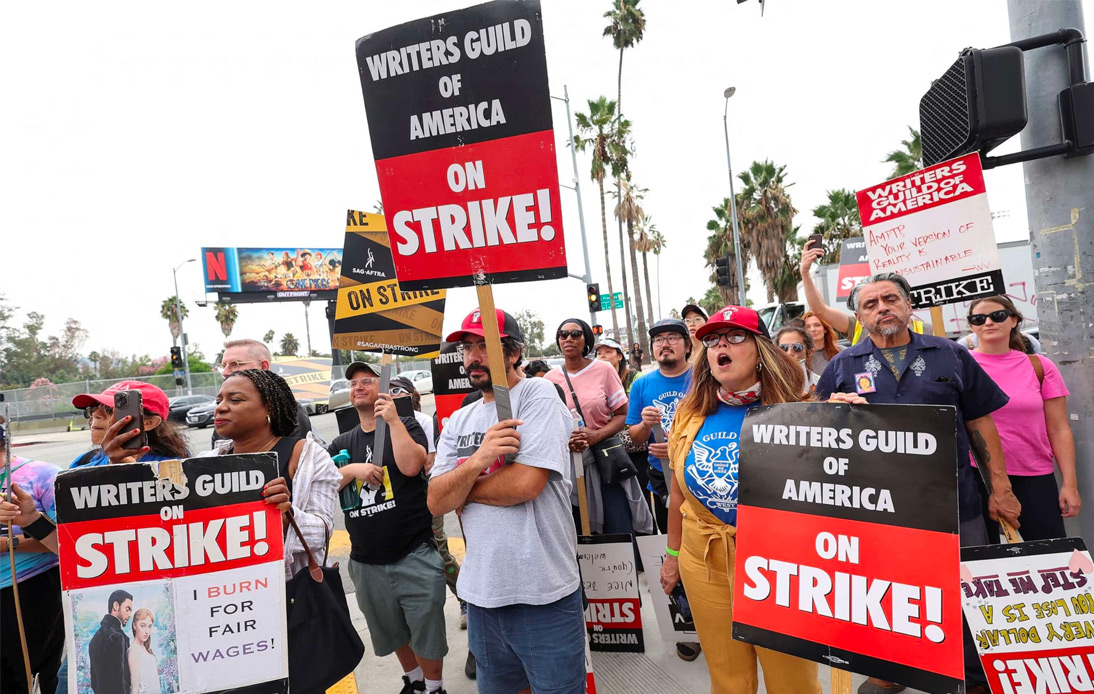
The Writers Guild of America announced on Sunday evening that, following days of intensive negotiating sessions, striking writers and major film and television studios have reached a tentative agreement.
This development could mark the beginning of the end for the historic halt in work that has suspended production and left a substantial portion of Hollywood in a standstill.
“What we have won in this contract – most notably, all advancements made since May 2nd – are a testament to the members’ readiness to wield their power and showcase their unity,” the WGA conveyed in an email to its members on Sunday.
“Their willingness to stand together and bear the pain and uncertainty of the past 146 days has been crucial. It is the leverage generated by your strike, in concert with the extraordinary support of our union siblings, that finally brought the companies back to the table to make a deal.”
The specifics of the agreement remain undisclosed as of now. The deal, pending approval by the WGA members – representing over 11,000 writers – signifies a critical juncture in the strike, which has spanned nearly five months.
This recent strike nearly surpassed the duration of the longest WGA strike in history, which occurred in 1988 and lasted 154 days.
“We can say, with great pride, that this deal is exceptional – with meaningful gains and protections for writers in every sector of the membership,” the WGA communicated in their note to members.
However, this tentative agreement does not instantaneously conclude the strike. “To be clear, no one is to return to work until specifically authorized to by the Guild. We are still on strike until then,” stated the WGA. “But we are, as of today, suspending WGA picketing.”
Members were urged to support the actors’ picket lines this week instead. The actors’ union, SAG-AFTRA, representing approximately 160,000 actors, has been striking since mid-July as well.
The strikes in Hollywood have been protracted and financially draining, with an estimated nationwide economic impact exceeding $5 billion, as per economists.
Associated sectors like restaurants, service companies, and prop stores have also experienced the repercussions of the enduring conflicts, necessitating staff reductions. In New York, the disturbance to 11 key productions incurred a loss of $1.3 billion and 17,000 jobs, as reported by Empire State Development.
The WGA might permit its members to recommence work before the formal ratification of the agreement by its members, according to a statement released on Tuesday. An individual with knowledge of the situation remarked that consequently, writers might possibly resume work within days.
On Sunday night, individuals with knowledge of the proceedings expressed hope that the agreement reached with the writers would facilitate a settlement with the actors as well.
WGA Concerns
Revenue from conventional linear television is on a downward trend, and despite their growth, streaming services are not profitable. Additionally, the seasons of shows on streaming platforms are often shorter, resulting in fewer opportunities for writers.
The writers have expressed that the prevailing economic structure and compensation models of the TV and film industry are unsustainable, with declining job prospects and diminished compensation for numerous writers who secure employment.
Many successful, award-winning writers find themselves struggling to make a living in the profession. Additionally, with the emergence of artificial intelligence, writers are becoming apprehensive and are seeking guarantees to ensure that humans, not machines, are behind the writing of films and shows.
Indeed, the application of generative artificial intelligence in production emerged as one of the last contentious issues, noted an individual acquainted with the situation.





















